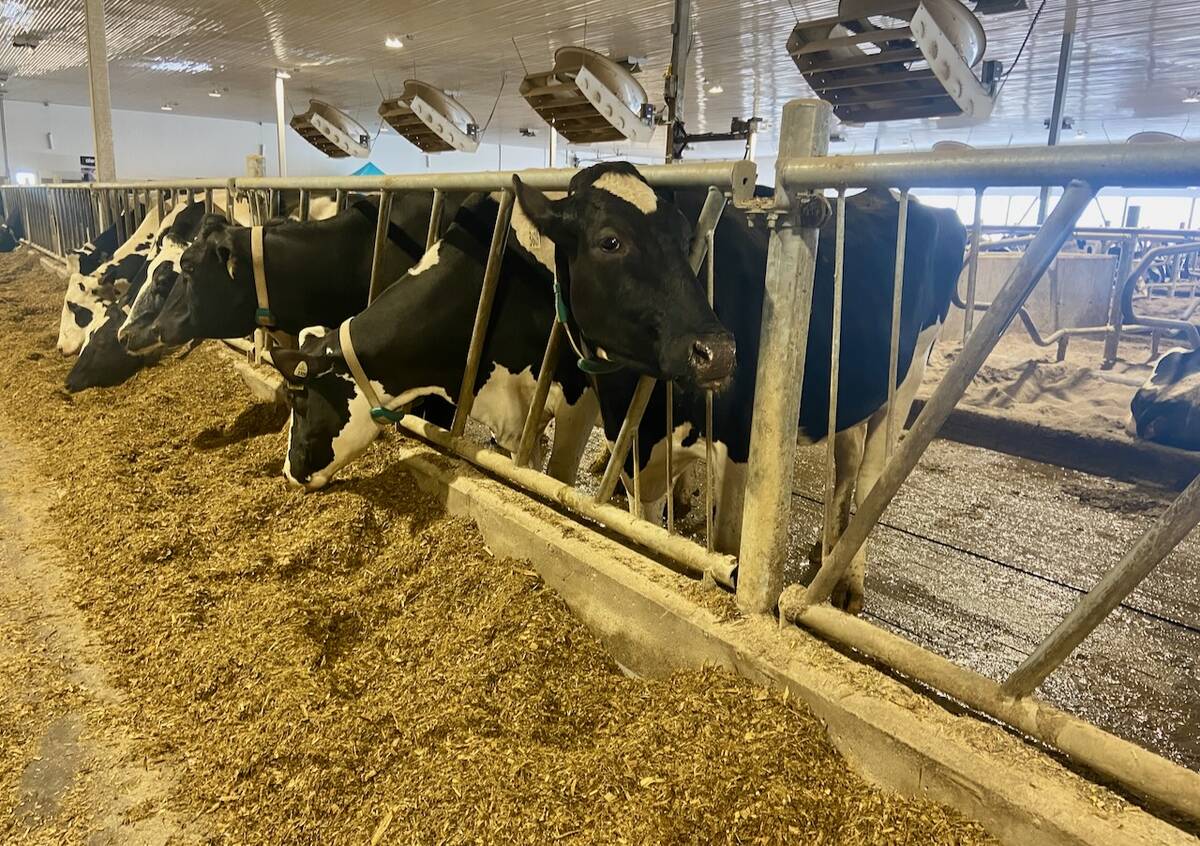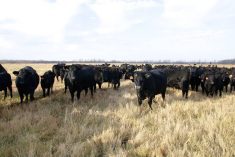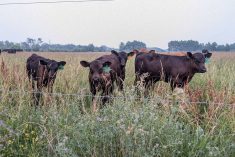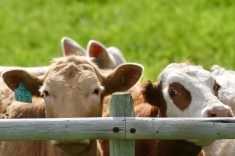RED DEER – A sizzling American market is spiriting away Canada’s best
alpaca and llama genetics.
Some of the best prices and most competitive bidding at this year’s
Legacy Classic llama and alpaca sale came from American buyers who
joined the annual auction by phone.
“The market is really hot in the United States,” said sale manager
Warren Fertig.
“Their sales are averaging $18,000 to $20,000 US.”
He and his partner Allan Fertig have run the Legacy Classic for 15
Read Also

U.S. farm group supports supply management
U.S. grassroots farm advocacy group pushing new agriculture legislation that would move towards supply management like Canada has for dairy industry
years, setting the pace for Canadian prices and trends in the llama and
alpaca market.
Prices dropped at this year’s sale because commercial prices were
offered for some purebred stock.
However, prices were better for higher quality animals with double
registration in Canada and the U.S.
Animals with a double purebred registration were snapped up and ready
for export within five days.
Buyers from Colorado, Pennsylvania and Ohio paid top dollar for males
and females.
The alpaca sale averaged about $4,800 per animal, with the best money
coming for males. Forty-three llamas averaged $2,131.
The high-selling alpaca was a dark brown female consigned by the
Fertigs. She is a double registered, Bolivian yearling that sold to a
Canadian buyer for $12,000.
The high-selling llama came from Whirlwind Llama Co. and Twin Lakes
Llamas of Taber, Alta. The suri-type yearling female will be exported
to Ohio.
American buyers are especially interested in suri-type llama males.
These animals have long, tendril-like fibre with plenty of curl and
crimp. The shiny fibre produces a lustrous fabric that is in high
demand.
Fertig said some of these suri-type males are fetching as much as
$30,000 US.
“A really good suri male sold for $40,000 last year.”
This fibre type is bred into the species through genetic selection.
While the money is enticing for Canadians, there is concern the country
will lose its best breeding stock.
“Canadian breeders are starting to realize, by golly, these animals are
slipping away from us,” Fertig said.
“Canadian breeders should be standing up and buying these double
registered females.”
He also said the industry could find itself in trouble if unforeseen
health problems were to close the borders.
Importing animals from the U.S. is painstaking, with a 90-day
quarantine period. Only larger groups of animals may come into the
country at one time.
Canadian llamas and alpacas have the same high-health status as other
Canadian livestock species, providing Americans easy access to the
animals.
The next major llama sale is at White Star Llama and Suri Alpaca Farm
in Prince Albert, Sask., on Aug. 31. Eighty llamas are expected to be
for sale.















